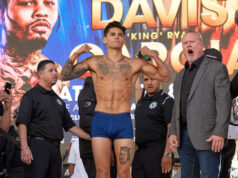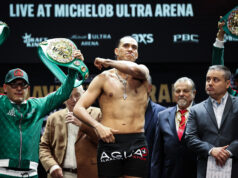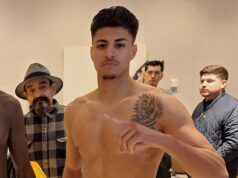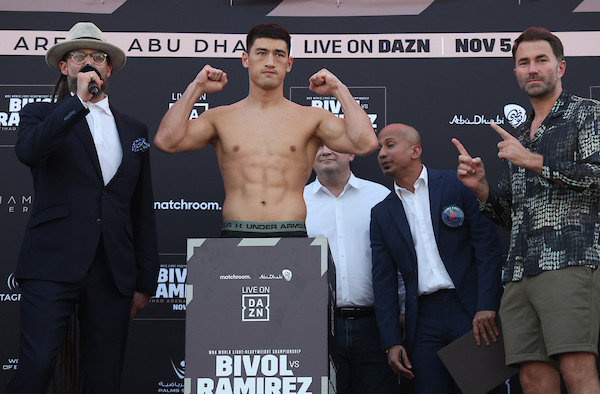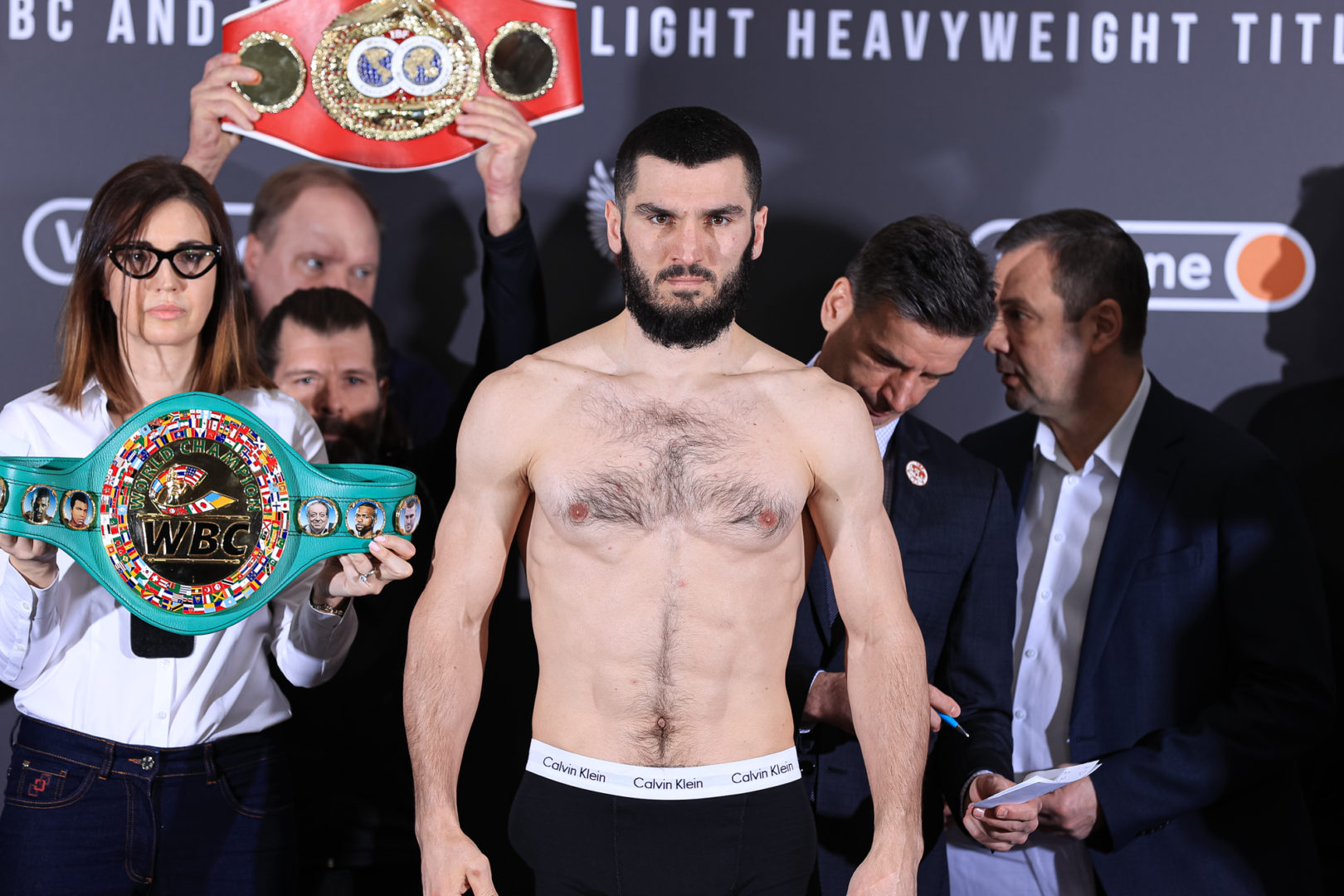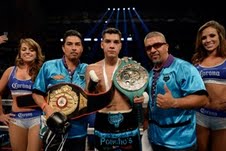
SAN ANTONIO – I like to think I write quickly, finding words within the readymade template, lede to nut to quote to body, that governs ringside reporting and probably has for centuries. Yet Saturday, as I groped to describe what happened during Andre Berto versus Jesus Soto-Karass, as fine a main event as our sport may see for the rest of 2013, I was entirely alone. Before I was within 300 words of filing, there was nary a soul in AT&T Center’s other 10 rows of particleboard tables.
Turns out, half the writers left after the co-main, and those who stayed did not have editors that wanted more than a line about the walk-out match, and raced back to the media center to reserve a seat at the press conference. Such is the drawing power of Weslaco’s Omar Figueroa in South Texas, and such was the match he made with an indomitable Japanese lightweight named Nihito Arakawa.
Figueroa is every good thing South Texans say about him, but there, too, was Arakawa, all through their 36 minutes of mutual belligerence, cussedly stomping forward, making the volume puncher’s compact with Figueroa who was prepared as possible for a meaningful and violent confrontation but necessarily unprepared for the grotesquerie of Arakawa’s bottomless capacity for absorption, as if punches were an ocean and he was set on the task of patiently mopping the beach and emptying its seawater in a bucket.
That was exactly how futile Arakawa’s task appeared to three judges – a Californian, a Mexican and a Nevadan, no Texans, who scored an intensely fine match 119-107, 118-108, 118-108, grading Arakawa’s performance somewhere between Short Notice and Heavybag – yet Arakawa did not relent. There is a momentum to prizefighting, of course, but it hasn’t nearly the fluidity professional scorekeepers observe at ringside, where every fighter who won the previous round begins the next with a symmetrical lead, and keeps that till his opponent overcomes a judge’s mental inertia with force great enough to convince him something materially different has occurred. Chuck Giampa, deservedly famous for taking Showtime viewers inside the mind of a judge, instructs aficionados, elsewhere and here: There is not an iota of infallibility to be found at ringside, so do not look for it or rage at its unjust absence.
Arakawa’s secret to absorbing punishment is a kin to his having informidable punching power; he does not commit fully to any punch because he’d rather remain within himself, in full self-possession, working to a rhythmic tempo he alone hears, keeping his southpaw hands and feet in motion, right hook and shoulder and left cross and shoulder and left to the body and right to the head, shoulder, shoulder, backwards step, overhand left, backwards stutter, right foot shuffle, shoulder, left hook . . .
Arakawa’s mental resilience is not a matter of making adjustments to an opponent in mid-fight but one of preparation and self-knowledge, of reducing his required thoughts in combat to a simple yes/no question – “Am I comfortable?” – that he can answer even when partially or fully out of his mind. It is not the simpleton’s approach for which it is mistaken, always, by those who’ve not employed it, either for having natural gifts of power or reflex too great to sacrifice, or for having never worn gloves; it is the choice of our sport’s most introspective and intellectually hardy practitioners, an intelligent choice that asks, in all humility: What am I not as good at as another, and how can I reduce his advantages?
Arakawa, blasted repeatedly in the opening six minutes by a South Texas lad with 17 knockouts in 22 fights, a lad yet to meet man or beast capable of absorbing more than a baker’s dozen of his best strikes, a lad, coincidence would smilingly note, who shares a trainer with Timothy Bradley, boxing’s finest practitioner of the very style Arakawa applies pretty damn well himself, a lad who said two Fridays before he would have to strip naked in the breathless heat and pitiless light of a South Texas supermarket parking lot at two o’clock on a July afternoon that if the time came for his mind to blank in an orgy of attrition, like Bradley’s did in March, he prayed not to solicit the white feather, wilting before another man’s greater desire – blasted repeatedly by that lad, Arakawa relaxed, found his comfortable place, and forced his will on Figueroa’s fighting spirit, and Figueroa did not wilt.
But he did tire. As he took the scale Friday afternoon, he looked somewhat drawn, in the tradition of longarmed Mexican prizefighters who bring severity to other men at a weight no fewer than 25 pounds below a physique nature would not begrudge them, and then he missed by a quarter pound, 135 1/4, and had to disrobe entirely. It was an interesting spectacle of modesty and awareness, that. Figueroa, who emphasizes his desire to be a role model to kids in the Rio Grande Valley where Weslaco sits, requested a barricade of blinding towels, a square perimeter of white terrycloth, and then took to the scale, package in hand, cupping his manhood in his right fist, and made weight – disproving one physics-defying myth of Mexican prizefighters: Raising your arms overhead and inhaling will begin a negotiation with gravity that reduces slightly your weight. This curious show of modesty brought a tiny, unexpected touch of further likability that explained why Figueroa was, by far, AT&T Center’s most popular prizefighter.
And that was before Figueroa and Arakawa made a historic show of valor and sportsmanship, elevating one another’s public standing, making even wizened fight scribes grateful.
Bart Barry can be reached at bart.barrys.email (at) gmail.com





